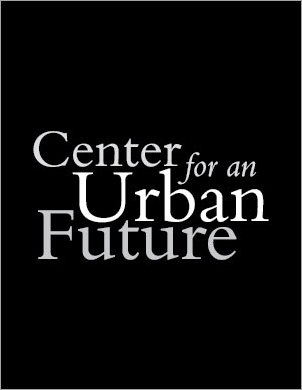Good afternoon. My name is Jonathan Bowles and I am the research director of the Center for an Urban Future, which is a non-partisan policy institute that issues reports about policy issues important to the future of New York City.
Thank you for inviting me here today. I am grateful to have the opportunity to testify before this committee at a hearing that will hopefully help shine a light on how appallingly little our state government leaders in Albany have done for New York City-—not just in response to the city’s current fiscal crisis or in the months after 9/11, but consistently going back years. Hopefully, this hearing will help exert pressure on the Governor and the Legislature, whose actions over the past several years played a significant role in putting the city in a fiscal crisis. And hopefully it will help make it crystal clear to politicians and citizens from across the state that it’s in everyone’s interest to have a healthy New York City.
I could go on and on about how Albany has put the screws to the city. In April of last year, I authored a report titled “Sympathy, But No Support: Even After 9/11, Albany Continues a Decade-Long Pattern of Shortchanging New York City” that detailed how a series of actions undertaken in Albany over the past decade deprived the city of nearly $2 billion in revenue. The long list of actions includes everything from repeal of the city’s commuter tax in 1999, the 2001 decision to end the $114 million a year stock transfer payment that the state had been making to the city for more than 20 years, enacting several laws that force the city to significantly increase wages and benefits to certain municipal workers; and shortchanging the city on a litany of programs, including school aid, basic aid to local governments, the environmental bond act and the national tobacco settlement.
I commend Councilman Vallone and the members of this committee for putting Albany’s treatment of New York City on the table today. That said, however, I have to admit that I am opposed to the idea of the city seceding from the rest of the state, and I am opposed to creating a commission to consider such an option.
Aside from the fact that Congress will never approve of New York City becoming the 51st state, I just don’t think we have reached the point where the city needs to pursue such an extreme action. Also, going down this road could have negative repercussions on the city, including losing political support in Washington, widening an already troubling rift between upstate and downstate residents, and taking us in the wrong direction at a time when the city is increasingly part of a regional economy—-and when the city should be pursuing strategies to become more integrated with the rest of the region, not less. After all, we’ve got enough problems with that state of New Jersey enacting tax incentives intended to swipe the city’s corporations. Do we really want to be in a situation where we won’t have a say in what Westchester or Nassau County are doing to compete with the city?
I do feel strongly, however, that the Council should pursue the issue of the city’s unfair treatment in Albany. Perhaps there should be an independent advocate for the city in Albany, someone who would provide information to city officials and the public about the impact of pending legislation on the city. Or perhaps the Council should call for an annual report to be written that details how much the city sends to Albany every year and how much it gets back in return. It’d be best if this were done by an independent organization. (A 1999 report by the Rochester-based Center for Governmental Research found that New York City sent $2.6 billion more revenue to Albany every year than it received during the fiscal years 1992 to 1997.)
Finally, I’d urge everyone on the Council to pressure your colleagues in the State Legislature to stop shortchanging the city. After all, 65 of the 150 members of the State Assembly and 26 of the 62 members of the State Senate represent districts in the five boroughs. They should be held accountable for their actions. Remember, 23 legislators from the five boroughs voted for the repeal of the city’s commuter tax in 1999. The list is on our website, if anyone's curious.


